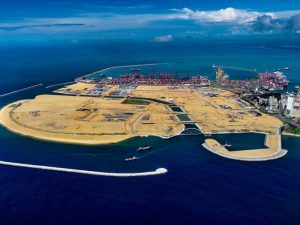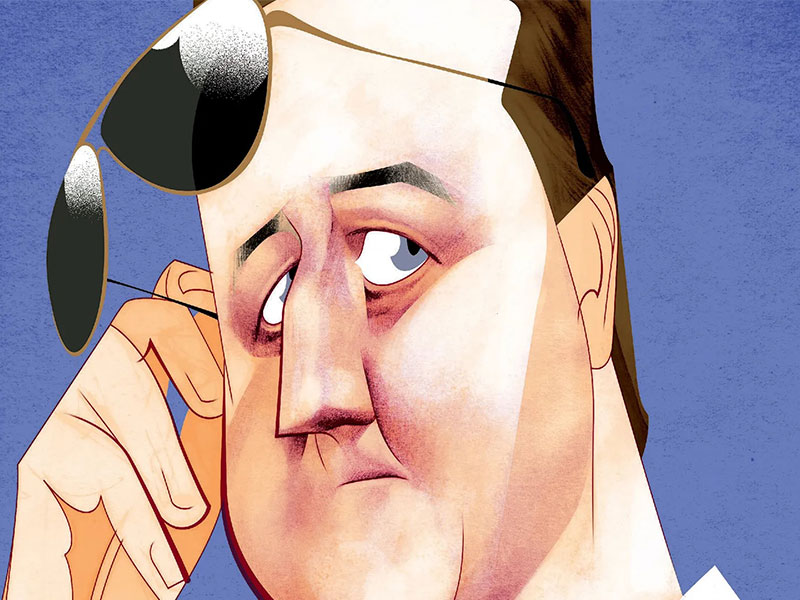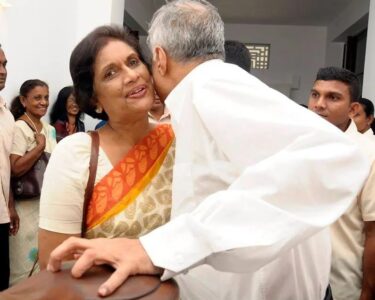David Cameron is facing further questions about whether he was paid by Chinese interests to promote a port development in Sri Lanka, as footage emerged of him extolling its benefits.
In the video from two months ago, the former British Prime Minister can be seen telling investors in Dubai that he wanted to “correct misapprehensions” about the project and quoting from a Chinese-funded study in support of the development.
Lord Cameron, now the Foreign Secretary, has been under pressure over his paid speeches to drum up support for the Sri Lankan Port City, which is being built by a Chinese State firm, China Harbour Engineering Company.
KPMG Sri Lanka:
He has claimed not to have engaged with the Chinese firm in relation to the speeches, and his spokesperson has said he was hired by KPMG Sri Lanka.
Pat McFadden, the shadow Cabinet Office minister, asked in Parliament on Thursday whether the Chinese State firm or the Sri Lankan government were ultimately the clients behind the payment.
John Glen, the government minister responding for the Cabinet Office, said it was not a matter for him to answer but that Cameron has complied with the relevant processes.
Kirsty Blackman, an SNP MP, told Parliament that the “perception of Lord Cameron being put into this role [as foreign secretary] having clearly been lobbying on behalf of hostile foreign interests does nothing for the perception of politicians as being trustworthy.”
The footage of the event shows Cameron citing a glowing PwC report commissioned by the Chinese state company to make the case in favour of the project. “The PWC study shows it could create over 200,000 jobs, it could make a substantial contribution to Sri Lankan GDP,” he told the Dubai audience.
A note at the bottom of the report says CHEC Port City (Private) Ltd is the client and that the report “relied on information provided by the client.”
In the video, Cameron said it was “very good to be here this evening in Dubai to talk about the opportunities for people to invest” in the port, and that he was there to “correct misapprehensions” about its ownership. He stressed that Sri Lanka was the ultimate owner and the Chinese company had only leased part of the land.
The Chinese company has a 99-year lease on two-thirds of the new city, which has fuelled fears from critics that Beijing could use Sri Lanka as a military base for docking naval ships. The firm is ultimately owned by the Chinese state, through a company blacklisted in the US for militarising areas of the South China Sea.

Cameron has not disclosed how much he was given for the speeches via the Washington Speakers’ Bureau. His spokesperson told the Observer that they did not recognise Sri Lankan media reports that he was paid USD 210,000.
Last week, the spokesperson told Politico, which first reported on Cameron’s involvement in the project: “Cameron has not engaged in any way with China or any Chinese company about these speaking events.”







